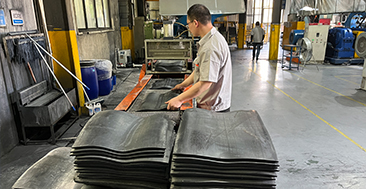Engine Oil and Coolant Line Maintenance for Optimal Performance
Σεπ . 30, 2024 16:54 Back to list
Engine Oil and Coolant Line Maintenance for Optimal Performance
Understanding Engine Oil and Coolant Lines Their Importance and Functionality
In the realm of automotive engineering, the efficiency and smooth functioning of an engine is paramount. Among the myriad components that contribute to an engine's performance, engine oil and coolant lines play critical roles. These systems not only ensure the effective lubrication of engine parts but also regulate temperature, preventing overheating and maintaining optimal operational effectiveness.
What Are Engine Oil Lines?
Engine oil lines are critical pathways through which engine oil circulates, lubricating various engine components such as pistons, bearings, and camshafts. The oil is pumped from the oil pan by the oil pump and flows through these lines to reach critical areas in the engine. Lubrication isn’t merely about reducing friction; it also helps to remove contaminants and cools the engine by dissipating heat generated during combustion.
The oil lines may be constructed from various materials, including rubber, silicone, or metal, designed to withstand high pressures and temperatures. The design of oil lines is essential as leaks can lead to catastrophic engine failures due to insufficient lubrication. A well-maintained oil line system is critical for the longevity of an engine.
The Role of Coolant Lines
Parallel to the oil lines, coolant lines serve a different but equally vital function. Coolant, often a mixture of water and antifreeze, channels through the engine to absorb heat. This fluid travels to the radiator where it dissipates the heat before circulating back to the engine. Coolant lines, like oil lines, must be durable and resistant to thermal expansion and pressure changes.
The proper functioning of coolant lines ensures that the engine operates within the ideal temperature range. An overheated engine can lead to severe damage, including warped cylinder heads or a blown head gasket. Therefore, regular inspection for leaks and ensuring the integrity of these lines is essential for vehicle maintenance.
engine oil coolant lines

The Interconnection of Oil and Coolant Lines
Interestingly, the oil and coolant systems in modern vehicles often work in tandem. While oil lubricates the engine components, coolant maintains the engine's temperature. In some advanced engine designs, oil and coolant may even interface in oil coolers, where the engine oil is cooled before returning to the engine. This intersection illustrates how interconnected these systems are, both crucial to the performance and lifespan of automotive engines.
Signs of Potential Issues
Vehicle owners should be vigilant for any signs that might indicate problems with oil and coolant lines. Symptoms such as warning lights on the dashboard, unusual engine noises, or visible leaks under the vehicle can suggest failures in these systems. For instance, a leak in the oil line may not only lead to low oil levels but can also create a fiery hazard if oil comes into contact with hot engine parts. Similarly, a coolant leak can cause engine overheating, leading to major repairs.
Maintenance Tips
To avoid the issues associated with faulty oil and coolant lines, regular vehicle maintenance is essential. This includes routine oil changes, checking for leaks, and inspecting both the oil and coolant lines for wear and tear. A simple visual inspection can go a long way; drivers should look for cracks, bulges, or signs of leakage. If any issues are identified, it's crucial to address them promptly before they escalate into more significant problems.
In conclusion, engine oil and coolant lines are crucial components that ensure your vehicle runs smoothly and efficiently. Proper maintenance and timely inspections can help mitigate the risk of serious engine problems, ensuring that your vehicle remains reliable for the long haul. By understanding the functionality and importance of these systems, vehicle owners can better appreciate their role in automotive longevity and performance.
Latest news
-
Premium 4890 AC Hose | Durable & Perfect Fit Replacement
NewsAug.21,2025
-
High-Quality AC Hose: Compressor to Evaporator for Car
NewsAug.19,2025
-
Glass Storage Jar with Acacia Vacuum Vented Cover - HEBEI KEMO|Thermal Resistance, Food-Grade Safety, Eco-Friendly
NewsAug.18,2025
-
Glass Storage Jar with Acacia Lid - Hebei Kemao | Heat-Resistant, Eco-Friendly
NewsAug.18,2025
-
Glass Storage Jar with Acacia Vacuum Vented Cover - HEBEI KEMO|Thermal Resistance,Eco-Friendly Storage
NewsAug.18,2025
-
Premium 4890 AC Hose | Durable AC System Replacement
NewsAug.18,2025
